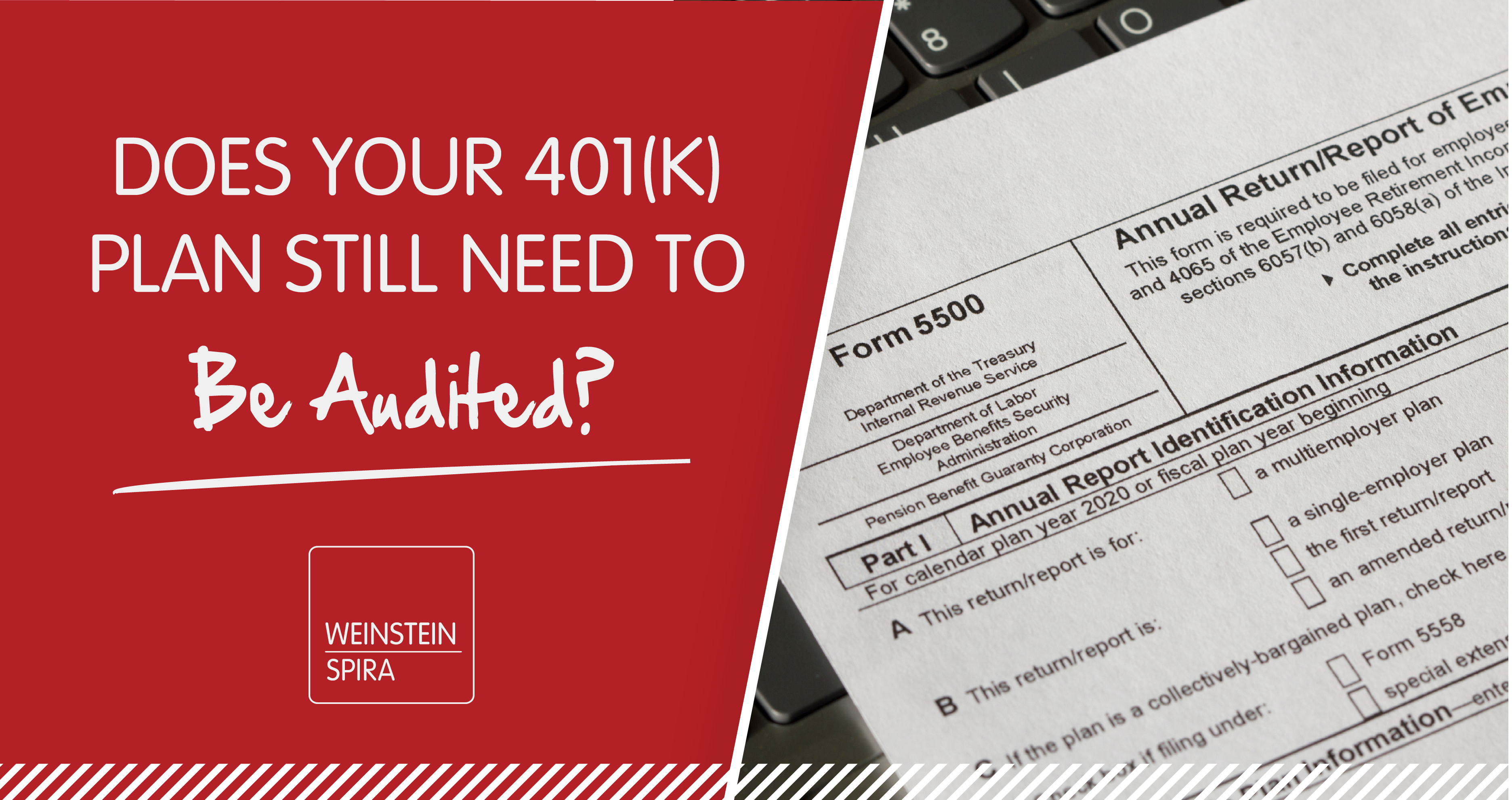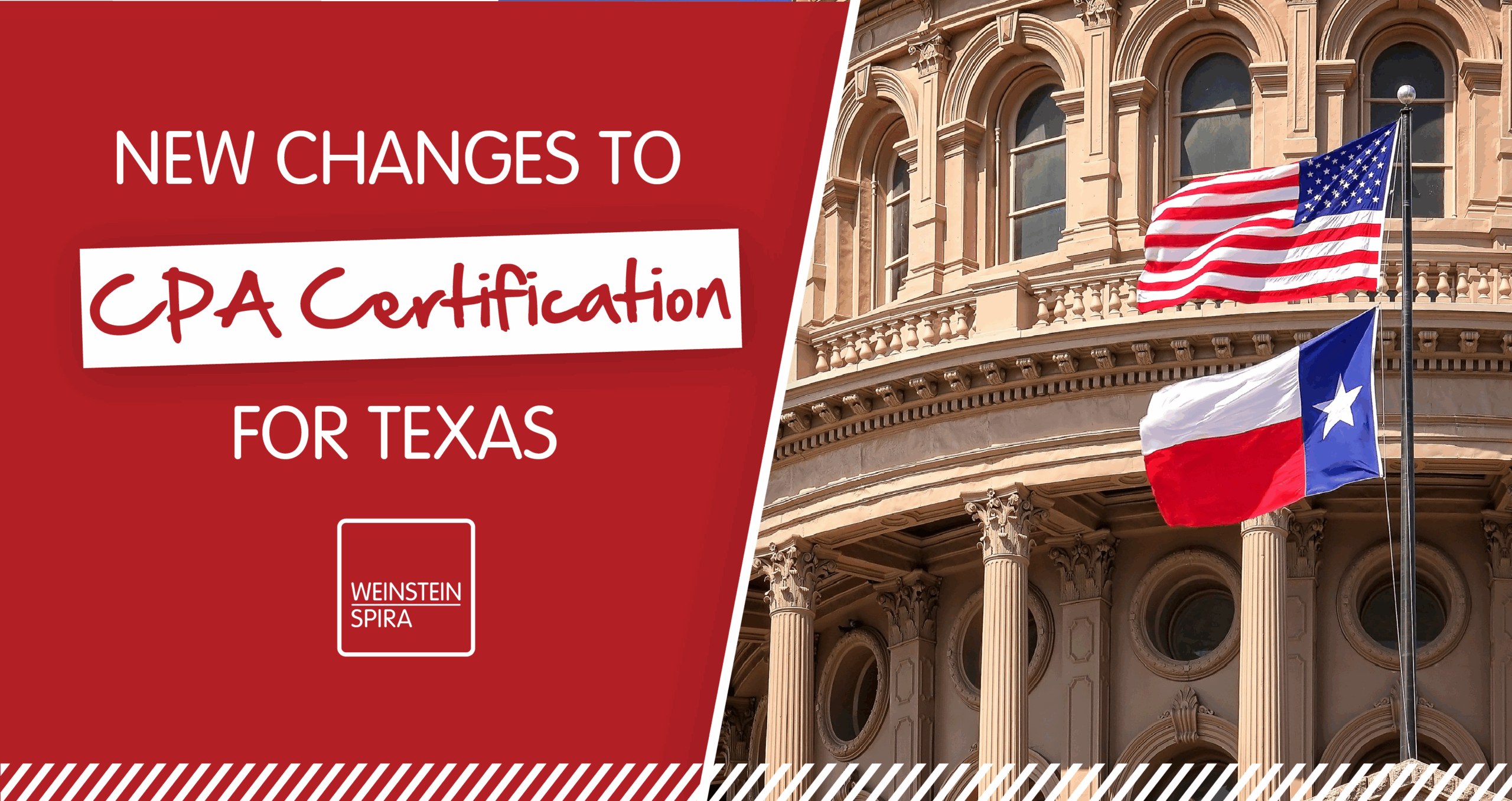Around this time of year, CFOs and HR professionals often ask me, “Does my 401(k) plan need an audit?” Due to recent changes made by the Department of Labor for the 2023 plan year, many will be very happy to hear that they can avoid an audit for a few more years.
Under federal law, most employee benefit plans with 100 or more “participants” on the first day of the plan year must submit audited plan financial statements when they file their plan’s annual Form 5500. These plans are considered large plan filers, and their Form 5500 filings require more detailed plan information, including an audit performed by an independent public accountant. Plans who do not meet these requirements are considered small plan filers.
Prior to 2023, participants were defined as individuals who were “eligible” to participate in the plan, regardless of whether they chose to contribute their own money. This meant that some plans with low participation rates had to incur the same audit costs as a plan with hundreds or even thousands of participants who actively participated and had an account balance in the plan.
Effective for plan years beginning on or after January 1, 2023, plan sponsors will now look to see how many participants have an account balance on the first day of the plan year, rather than the number of employees eligible to participate. This change is intended to strike a better balance for employers between the benefit of providing a retirement plan for employees and minimizing the administrative burden of offering a plan. The Department of Labor estimates that approximately 20,000 plans will no longer need an audit for 2023 because of this law change.
When determining whether your plan needs an audit, plan sponsors should continue to consider the following details, which are the same under both the old and new rules:
- Retired or separated employees, or the beneficiaries of former employees who have an account balance in the plan, are included in the participant count.
- Retired or separated employees, or the beneficiaries of former employees receiving benefits from the plan (annuity or installment payments), are included in the participant count.
- The 80 to 120 Participant Rule is still in place. Under this rule, if the number of participants covered under the plan at the beginning of the plan year is between 80 and 120 and a small plan Form 5500 was filed in the previous year, the plan sponsor may elect to continue filing as a small plan filer and, therefore, eliminating the audit requirement for one more year. Plan sponsors can continue this same pattern until their participant count exceeds 120 participants as of the first day of the plan year.
- In the initial year of the plan, the participant count is calculated as of the last day of the plan year.
Although it may be too late to avoid a plan audit for 2023, plan sponsors can consider the following items to effectively manage the plan’s participant headcount and possibly eliminate the audit requirement in future years:
- Make sure that the plan document includes an up-to-date force-out provision for terminated employees who have not taken a distribution of their 401(k)-participant account and that the process for administering force-outs is working effectively. Existing regulations allow employers to “force out” 401(k) participant accounts of $7,000 or less (prior to January 1, 2024, the amount was $5,000) if the participant is no longer employed by the company.
- Consider implementing a process to contact terminated employees with larger account balances to remind them of their 401(k)-account balance and their eligibility for a distribution from the plan.
For more information about these changes, please contact us here. Additionally, the Department of Labor’s fact sheet can be accessed via the following link (Fact Sheet: Changes for the 2023 Form 5500 and Form 5500-SF Annual Return/Reports | U.S. Department of Labor (dol.gov)).



